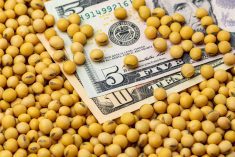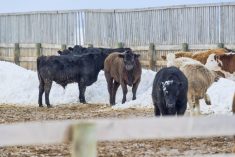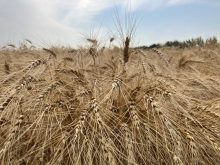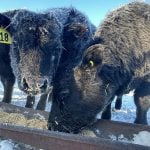Feeder cattle in Western Canada were $2-$3 per hundredweight higher for the second week in a row. Strength in the deferred live cattle futures, along with stronger beef wholesale prices, set a positive tone to the feeder market.
In central Alberta, a small group of red Angus-cross steers weighing 608 pounds sold for $170/cwt; large-frame Charolais-cross steers averaging 900 lbs. reached a high of $141/cwt in southern Alberta. A group of 50 exotic medium flesh heifers weighing 795 lbs. sold for $136 in the same region.
Backgrounding operations are starting to sell their fall bought calves. Cattle that have been on a weight gain-controlled diet are brining back a $4-$6/cwt premium over animals that have been fed a 30 to 50 per cent grain ration. Feedlot operations cannot push the efficiencies on these grain-fed backgrounded cattle and the market is reflecting the appropriate discount.
Read Also
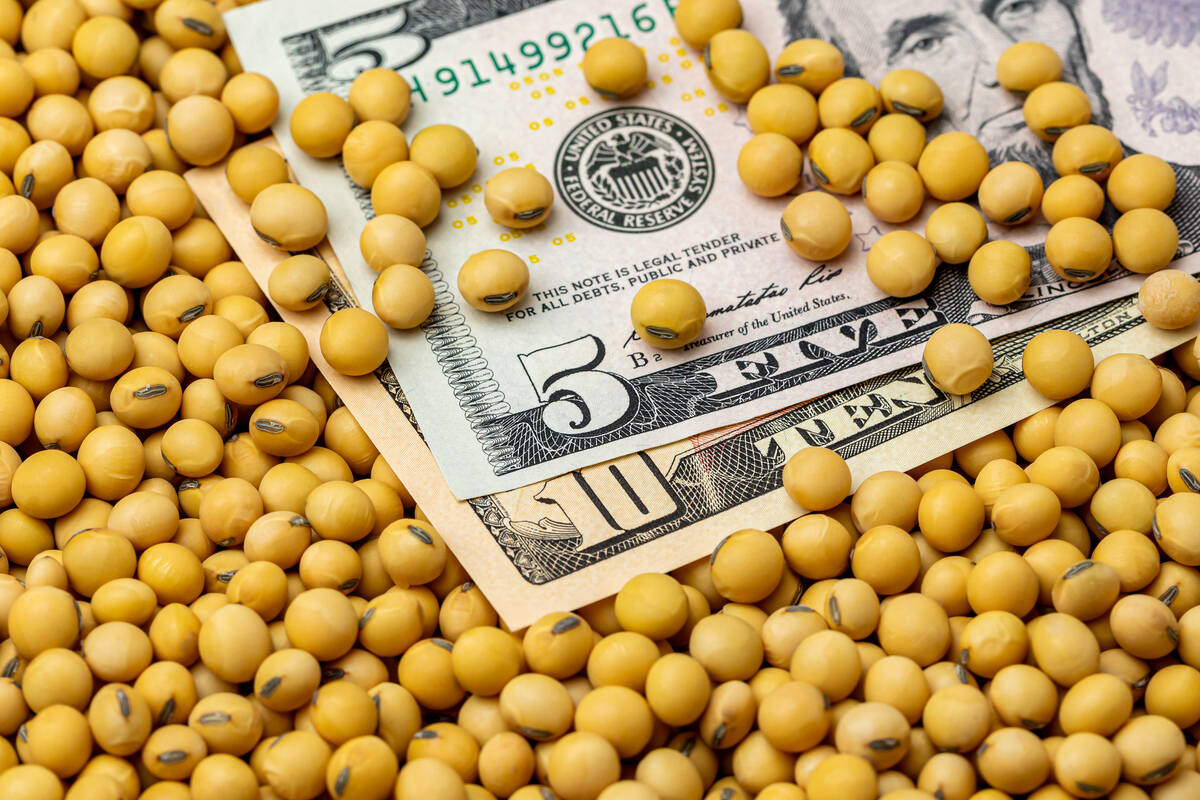
CBOT Weekly: Additional soybean purchases strengthen U.S. soy
There were good gains for the Chicago soy complex during the week ended Feb. 4, due to positive news that Wednesday.
The U.S. Department of Agriculture is projecting a year-over-year decline in U.S. beef production of five to eight per cent in the latter half of 2012. This is causing the deferred live cattle futures to incorporate a risk premium due to the uncertainty in production and strengthening nearby feeder cattle prices.
Alberta packers bought fed cattle in the range of $114-$117.50/cwt this week, up $3-$4/cwt from a week ago. Kansas cattle traded in the range of $128-$129/cwt while Nebraska cattle sold for $127-$128/cwt on a live basis and $200-$201/cwt on a dressed basis. Choice wholesale beef values moved above the $197/cwt level so prices are now higher than in March of 2011.
— Jerry Klassen is a commodity market analyst in Winnipeg and maintains an interest in the family feedlot in southern Alberta. He writes an in-depth biweekly commentary, Canadian Feedlot and Cattle Market Analysis, for feedlot operators in Canada. He can be reached by email at [email protected]or at 204-287-8268 for questions or comments.



